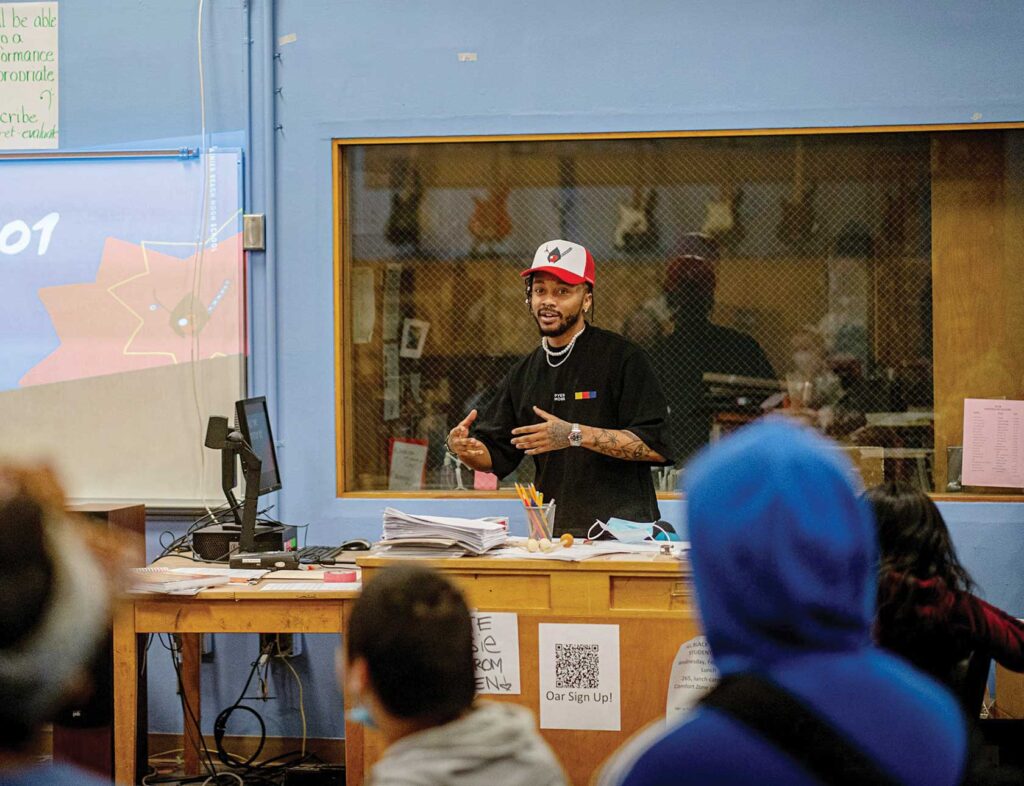
Teachers spend each and every day of their lives committed to building the future by educating children across the nation. Oftentimes, their job requires them to be more than teachers. They are communicators, collaborators and evaluators, investing in children’s futures at all times.
But with the growing demands of politicians, parents and administrators, teachers have reported feeling stretched too thin, with many leaving the profession. According to the Office of the State Superintendent of Education in D.C., 53% of teachers who began teaching in the 2019-2020 school year were no longer teaching by the 2024-2025 school year.
Many teachers cite burnout as the reason they leave the profession. Andrea Young, an associate professor of psychiatry at Johns Hopkins University, said that many people may be familiar with the feeling of burnout, but don’t always know the term.
Young described burnout as being “intensely fatigued, overwhelmed and apathetic about work.” She believes burnout is much more than just someone losing the spark.
“It’s not finding the joy in your work that you once did,” said Young. “It’s struggling to find your ‘why.’”
Young said that burnout, “if unmanaged, can bleed over into a person’s home life and their overall physical health. People experiencing burnout may not be getting enough sleep or be preoccupied with work during time with family or other social activities.”
Jasmine Lane, a teacher originally from Minneapolis, now working in London as an English teacher, had her career in the United States interrupted by COVID-19. In the midst of the global pandemic, she experienced burnout as a teacher for the first time.
“I was doing everything I possibly could … everything that I liked about teaching was gone. And everything that was the worst — which was the adults — was all that was left,” said Lane. “I didn’t have anyone, so ultimately, I quit.”
Young touched on the importance of support given by fellow teachers and administrators. She spoke about the fact that teachers tend to overcommit to tasks, even after they realize they are burnt out. Young’s advice is simple.
“Ask for the help — from your colleagues, from your principal, from the other folks who are there to support you. And ask for help from a mental health professional,” she said. “The one thing that I always say as someone who struggles sometimes to ask for help myself, is that sometimes help is mutual help, sometimes it’s collaborating, sometimes it’s teamwork and helping each other. There could be mutual sharing of resources.”
Capathia Campbell has been an educator at Hedville Elementary in Baltimore County for 25 years and shared that the support of her administrators has made all the difference. As a seasoned teacher she knows who she can approach for support and often goes out of the way to support younger teachers and provide advice. She acknowledged that although she has support, not every teacher does.
“Every day we are struggling with our students. Every day. Some of us struggle more, depending on the ZIP Code. And we have more in our back pocket than our lesson plan,” said Campbell.
Young shared steps people can take to prevent and manage burnout. First, she mentioned the importance of being aware of signs before they worsen such as getting more frustrated with students and handling situations differently than normal. Young also said it is important to disconnect from work when not at work. Although difficult, it can help teachers focus on other healthy habits to make them feel rested and connected to themselves.
Campbell said that she practices meditation and prayer and is intentional about exercise, swimming three times a week.
“As a woman of color, I know how we have been told we need to work harder than everybody else, but I now know how it can make us sick, so I set serious work boundaries,” she said.
Campbell doesn’t check her emails on weekends and she always takes her lunch break.
For Lane, the solution to her burnout was moving out of her environment. After she quit teaching in Minneapolis, she became an English teacher in London. She explained that in London, the students, teachers and administrators have a shared goal and responsibility toward success.
“London especially has some of the best results, because we work extremely hard, and the kids work hard, and we know exactly what we need to do to get them there. I’m much happier,” she said. “I work way harder now than I did in the States, but I actually see a real outcome.”
Campbell touched on the importance of positivity — especially given everything that has happened in the past five years.
“After this pandemic, make space for fun and joy and laugh with the children,” Campbell said. “Let them see that you’re human also and be present. Enjoy every minute of it because the children are watching.”
This article appeared first in the AFRO American Newspapers.







Leave a Reply
You must be logged in to post a comment.